You’re probably familiar with at least one or two terms used in Irish slang to describe girls.
You hear them in the movies and on TV.
And while you’re probably right about the ones you’ve got in your head at the moment, there area actually far more than that in use in Ireland.
There are many slang terms in Ireland for a girl, and many of them are incredibly contextually specific.
With that in mind, let’s take a look at some of the most common Irish slang terms for girl as well as some of the more obscure ones.
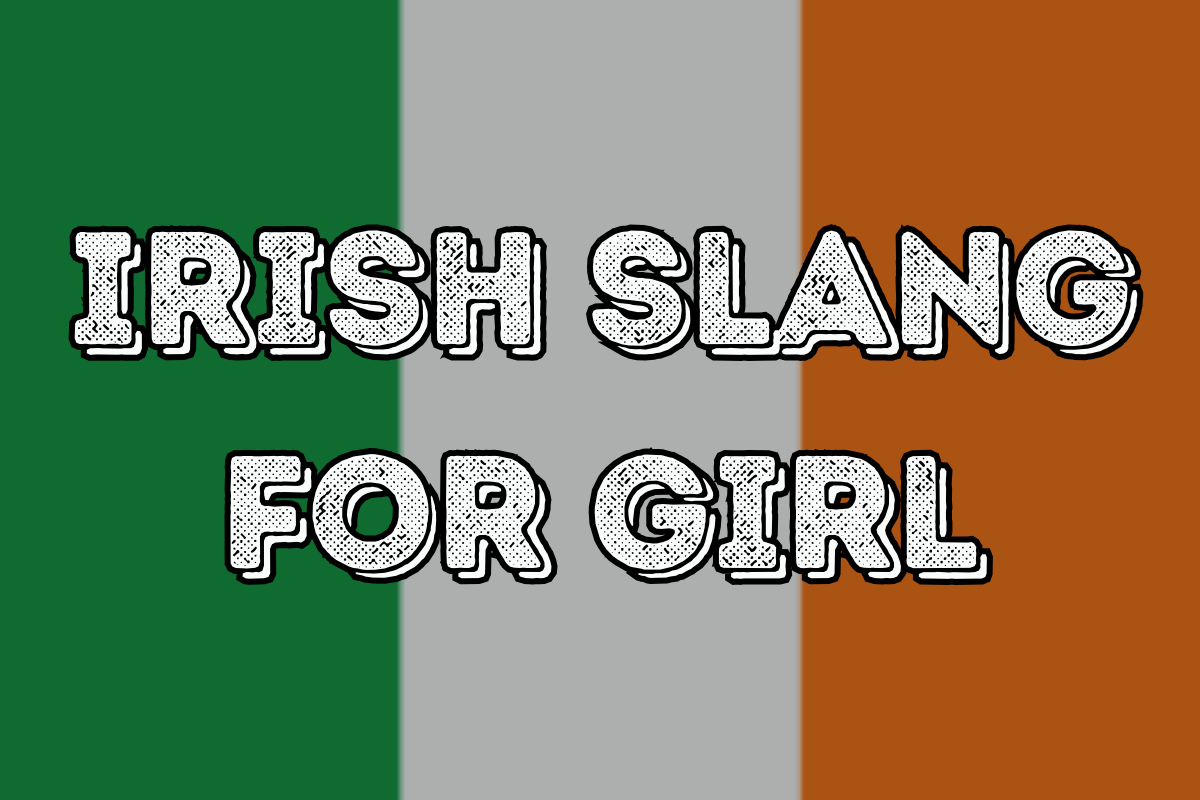
Irish Slang For Girl
Banshee
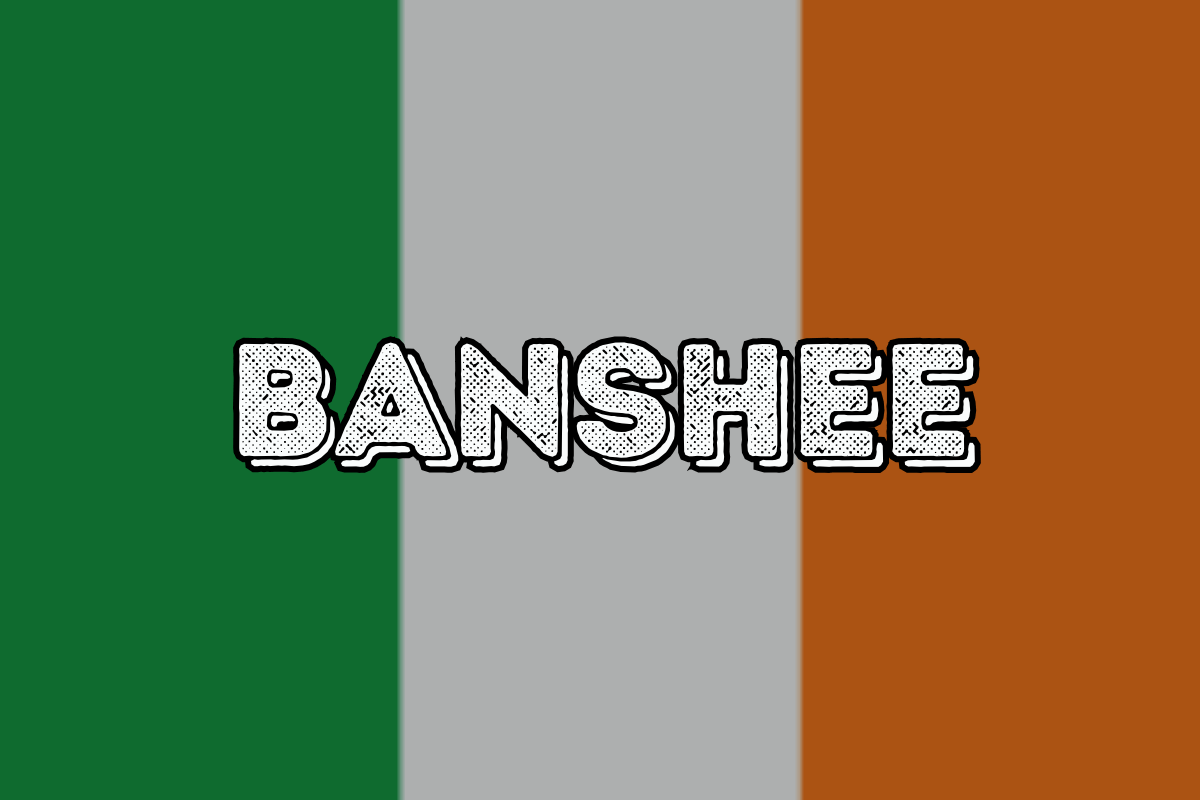
The word “banshee” originates from Irish mythology, where it refers to a ghostly woman whose wailing is said to foretell death.
However, in modern slang, it can be used humorously to describe a girl who has a particularly loud or high-pitched voice.
While not a widely used slang term for “girl” in everyday speech, “banshee” is sometimes thrown around to refer to someone who is especially vocal, energetic, or dramatic.
It carries a teasing tone rather than an outright insult, though context matters.
Despite its modern slang use, the original folklore meaning remains strong in Ireland, with many still associating the term with supernatural omens and eerie legends.
Examples in sentences:
- “She was screeching like a banshee when she saw the spider!”
- “Calm down, you’re wailing like a banshee over nothing.”
- “That girl’s got a voice like a banshee—no need for a microphone!”
- “The kids were running around screaming like banshees at the party.”
- “I knew she was excited, but I didn’t expect full banshee mode!”
Bird
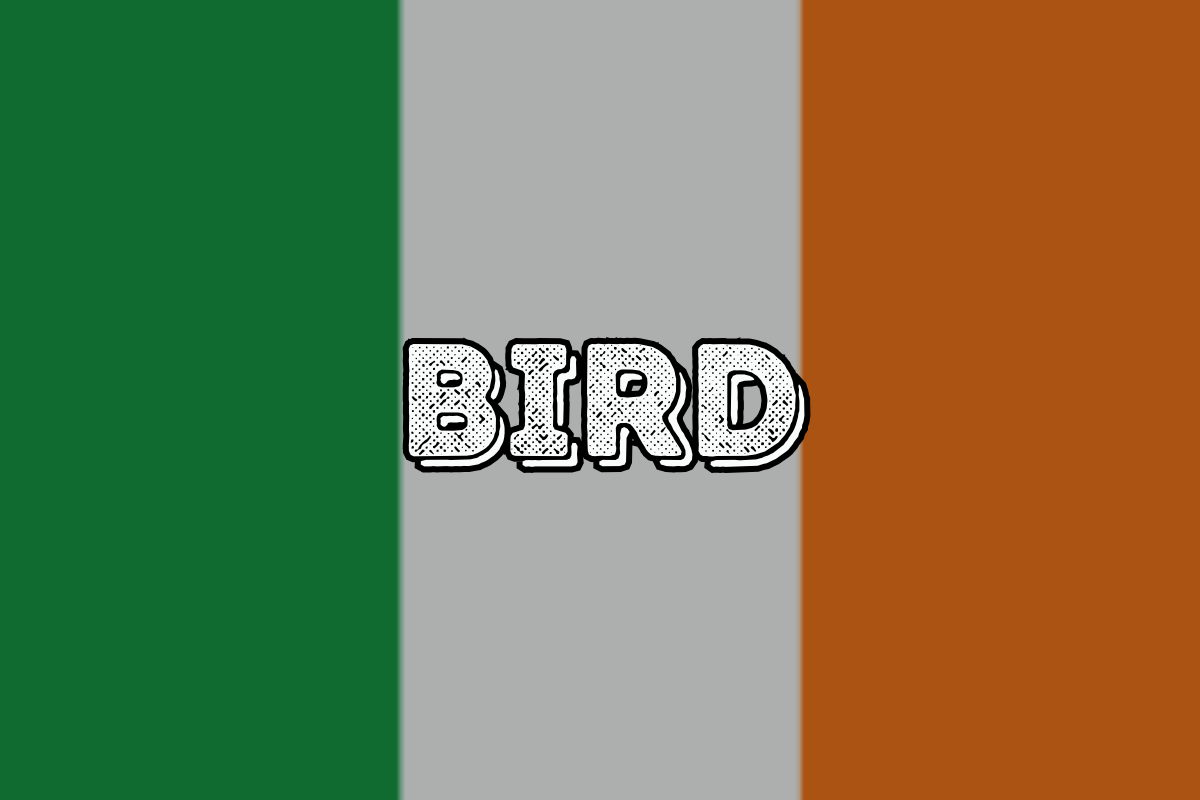
“Bird” is a well-known slang term for a girl or woman, often used in a casual or affectionate way.
While it’s widely associated with British slang, it is also commonly heard in Ireland.
Men might refer to their girlfriend as “my bird,” or simply use it as a general term for women.
Though still in use today, “bird” has an old-school feel and is sometimes considered a bit outdated.
It can also sound slightly cheeky or laddish, so it’s not always the best term to use in formal settings.
Despite this, it remains one of the most recognizable slang words for a girl in both Irish and British English.
The origins of “bird” as a slang term are unclear, but it may come from the idea of women being as delicate or admired as birds.
Some also suggest it evolved from older English words like “burd,” which meant a young woman or maiden in medieval poetry.
Examples in sentences:
- “He’s out with his bird tonight, so he won’t be joining us.”
- “Did you see that bird at the bar? She was stunning!”
- “My bird’s not too happy that I forgot our anniversary.”
- “Back in the day, every lad would call his girlfriend ‘his bird’.”
- “That bird over there keeps looking at you—go talk to her!”
Colleen
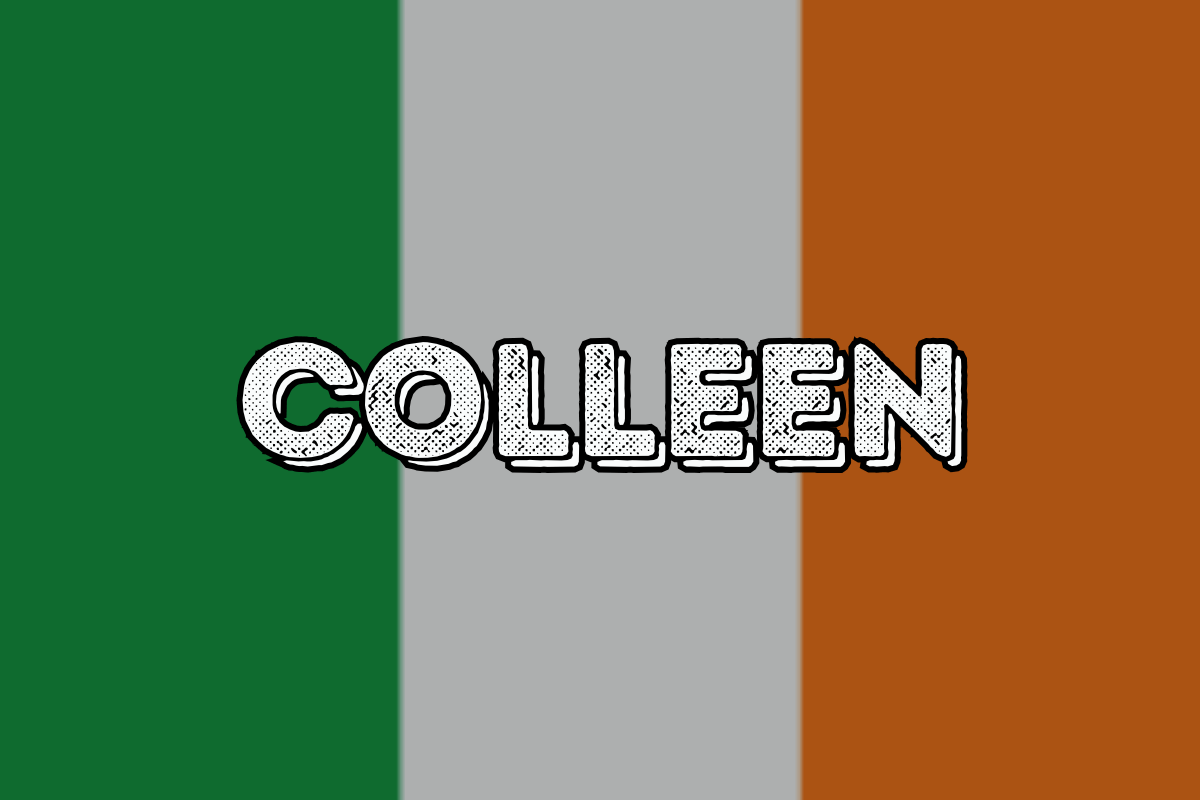
“Colleen” is a term used to describe an Irish girl or young woman. It comes directly from the Irish Gaelic word cailín, which means “girl” or “lass.” Though originally a common word in everyday Irish speech, “colleen” became widely known in English-speaking countries as a way to refer to an Irish woman.
In modern Ireland, “colleen” is not as commonly used in everyday conversation as it once was. Instead, it is often heard in older literature, folk songs, and romanticized depictions of Irish culture. Outside of Ireland, especially in the United States, “colleen” is sometimes used as a name for girls of Irish heritage.
The term carries a sense of nostalgia and traditional Irish charm, evoking images of rural Ireland and classic Irish beauty. However, in everyday Irish slang, more contemporary terms like “lass” or “girl” are more commonly used.
Examples in sentences:
- “She’s a lovely colleen from County Clare.”
- “Back in the day, they used to call all Irish girls colleens.”
- “That colleen over there has the voice of an angel!”
- “He fell in love with a beautiful colleen while visiting Dublin.”
- “The song was about a young colleen who captured his heart.”
Caitlin
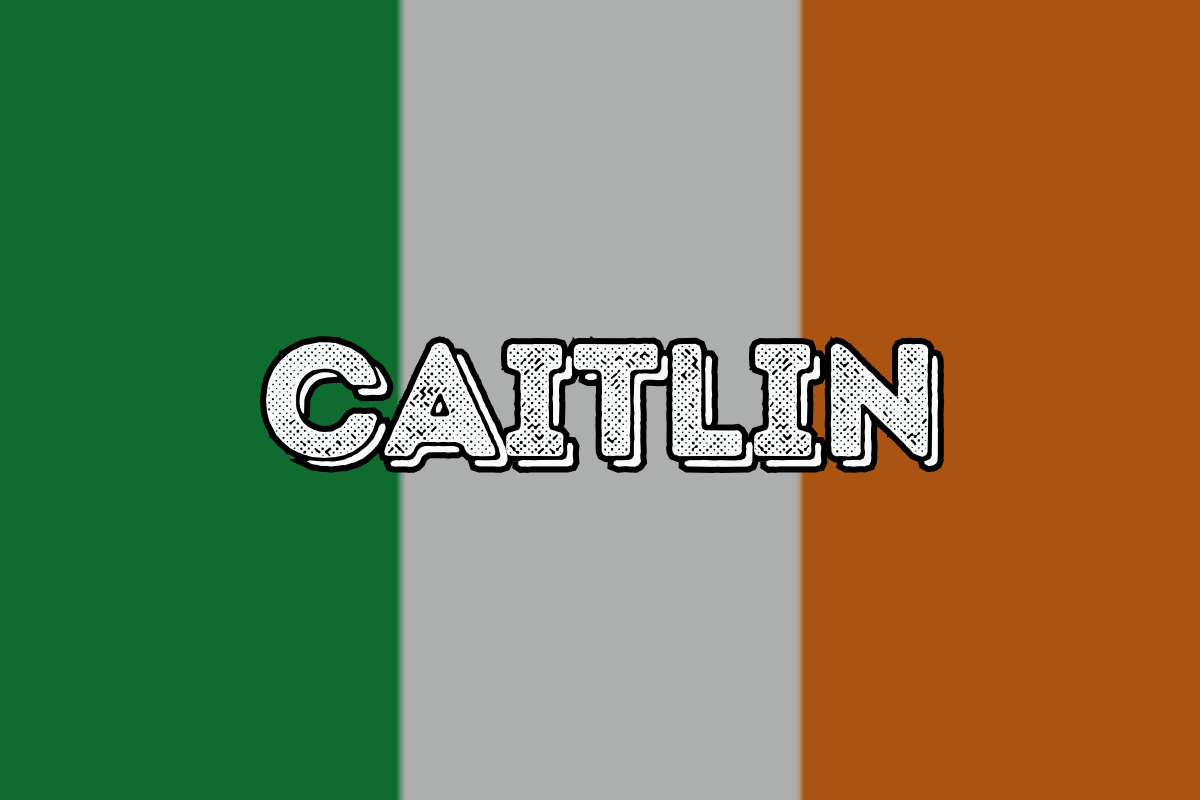
“Caitlin” is a traditional Irish name that has evolved into a casual term of endearment for girls. The name itself comes from the Irish Gaelic Caitlín, which is the Irish form of “Catherine.” Though originally a given name, in some parts of Ireland, “Caitlin” can be used to refer to a girl in a friendly or affectionate way, much like “lass” or “colleen.”
Pronunciations of “Caitlin” vary widely, with the most traditional Irish pronunciation being Kat-leen or Koith-leen. However, in English-speaking countries, it is often pronounced as Kate-lyn. This flexibility in pronunciation has contributed to its popularity as both a name and a term of endearment.
Though not as widely used as “bird” or “lass” in everyday slang, “Caitlin” carries a distinctly Irish charm and is often associated with Irish heritage and culture.
Examples in sentences:
- “Ah, she’s a real Caitlin, always full of life and laughter!”
- “Every Caitlin I’ve met has been as sharp as a tack.”
- “That Caitlin over there could talk the ear off a donkey!”
- “He’s always got an eye for a charming Caitlin.”
- “If you’re looking for trouble, you’ll find it with a Caitlin like her!”
Cailín
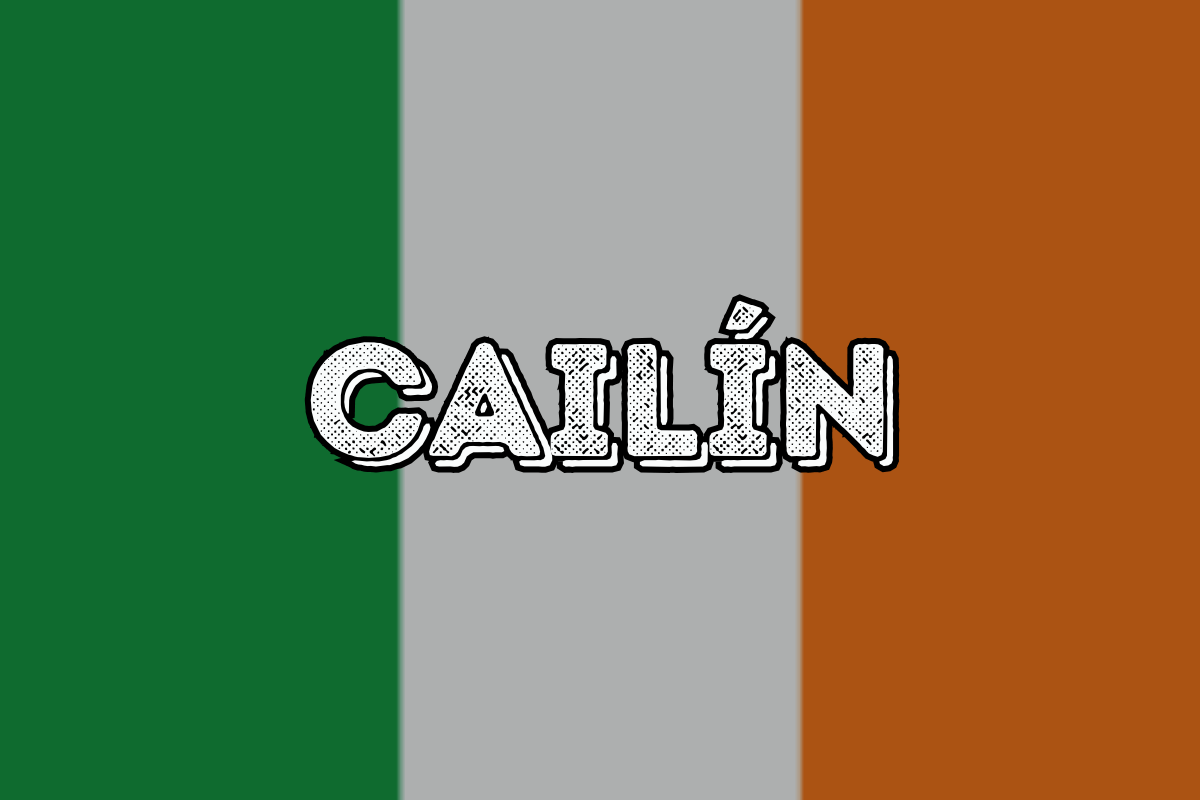
“Cailín” is the Irish Gaelic word for “girl” and remains a widely recognized term in both Irish and English conversations across Ireland. Pronounced ka-LEEN, it is often used affectionately to refer to a young girl or woman.
Historically, “cailín” was a common way to describe a young, unmarried woman, and it appears frequently in Irish literature, folklore, and music. Even in English-speaking contexts, some people still use “cailín” instead of “girl” to retain a sense of Irish identity and culture.
The word “colleen,” commonly heard outside of Ireland, especially in Irish-American communities, is an anglicized version of “cailín.”
Examples in sentences:
- “She’s a bright cailín, always top of her class.”
- “There’s a cailín I know who can out-sing anyone in the county.”
- “My grandmother loves to tell stories about when she was a young cailín.”
- “That cailín has the quickest wit in all of Galway.”
- “You’ll always find a cailín or two dancing at the céilí.”
Gal
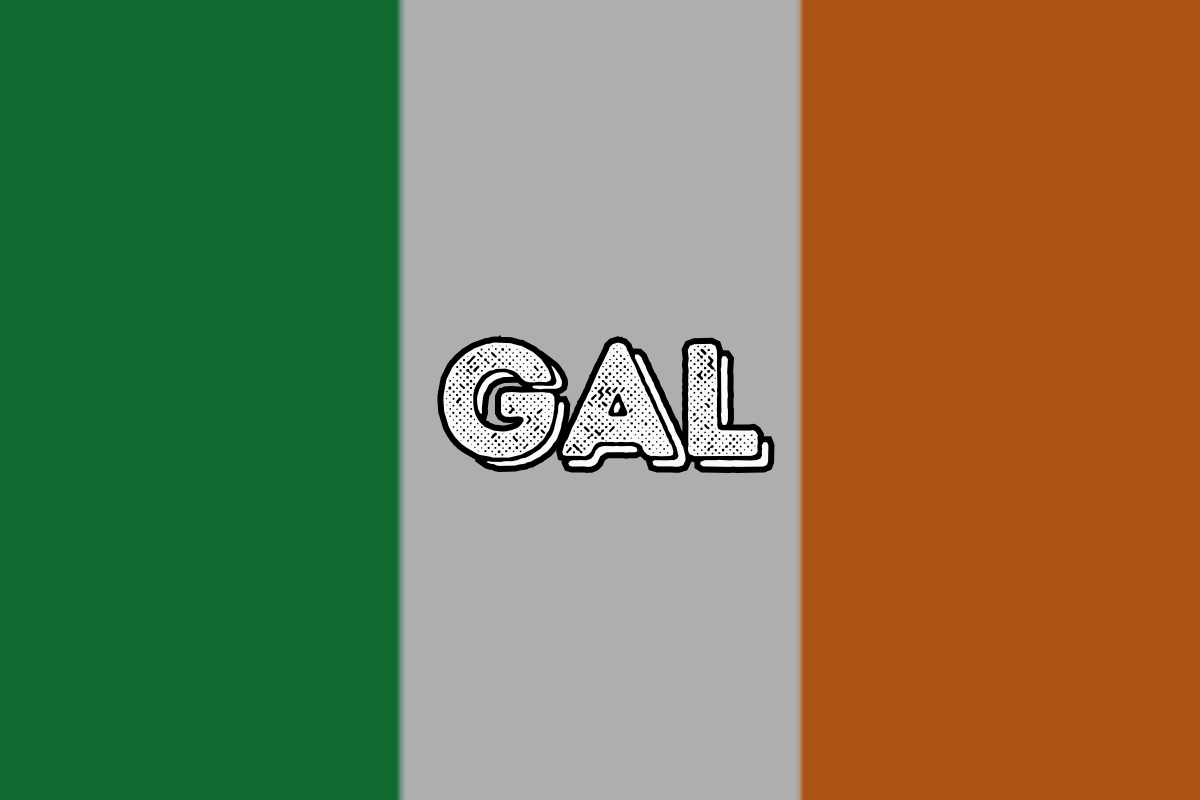
“Gal” is a casual and friendly way to refer to a girl or young woman. While it is commonly associated with American slang, it is also used in Ireland, particularly in relaxed, conversational settings.
The term is often used affectionately among friends and can be heard in phrases like “the gals” when referring to a group of female friends. It carries a lighthearted and informal tone, making it a popular choice in social settings.
Examples in sentences:
- “She’s a gal with a plan, always knows what she’s doing.”
- “The gals are getting together for a night out this weekend.”
- “That gal from the bookstore recommended the best books.”
- “Ask that gal over there—she’s lived in Dublin her whole life.”
- “My gran still calls me her little gal, even though I’m 25!”
Lass
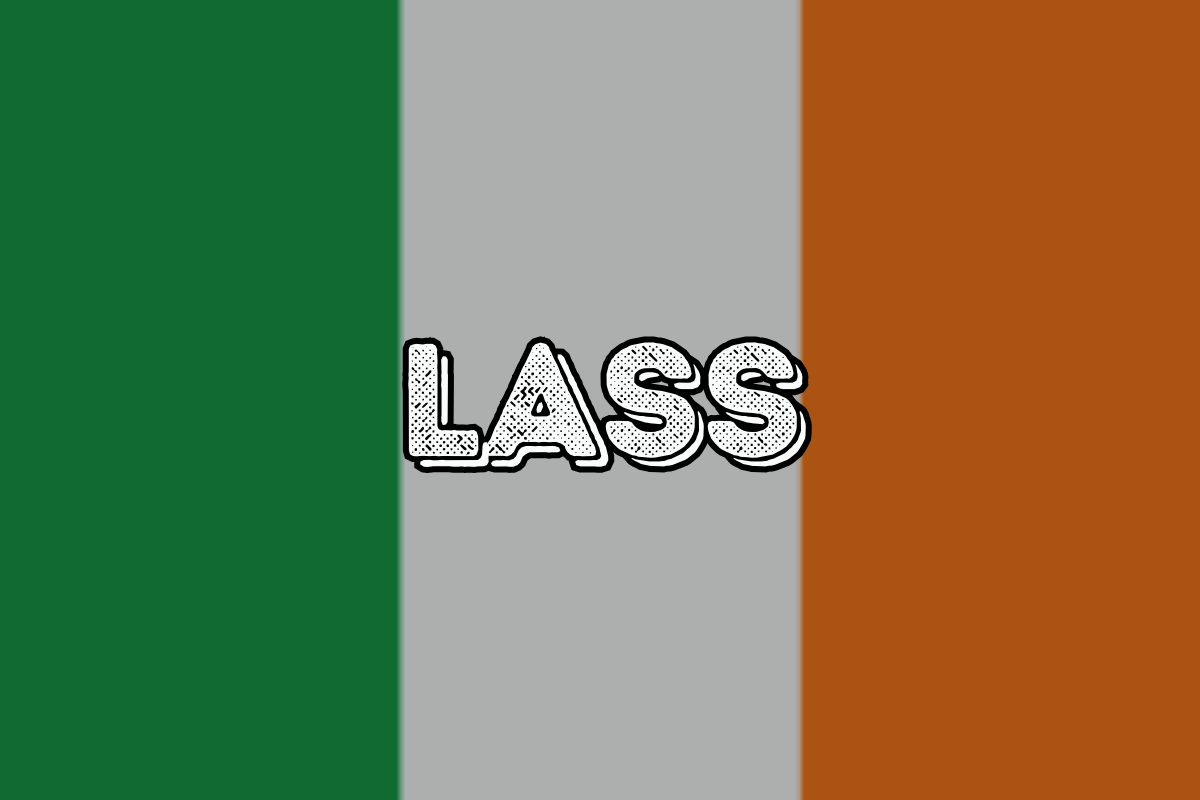
“Lass” is a warm and affectionate term for a young girl or woman.
While it is more commonly associated with Scottish dialects, it has also been widely used in Ireland for generations.
The term carries a friendly and familiar tone, often used in rural areas or traditional settings.
It is frequently heard in casual conversations and can be used in both a playful and endearing way.
Whether referring to a friend, a romantic interest, or simply a young woman, “lass” remains a charming and old-fashioned term still in use today.
Examples in sentences:
- “There’s a lass I know who has the most infectious laugh.”
- “He’s been sweet on that lass since they were both in school.”
- “Who’s the new lass working at the café? She makes a fine cup of coffee.”
- “The young lass at the market gave me a great deal on apples.”
- “I met a lovely lass from Galway on my travels.”
Maiden
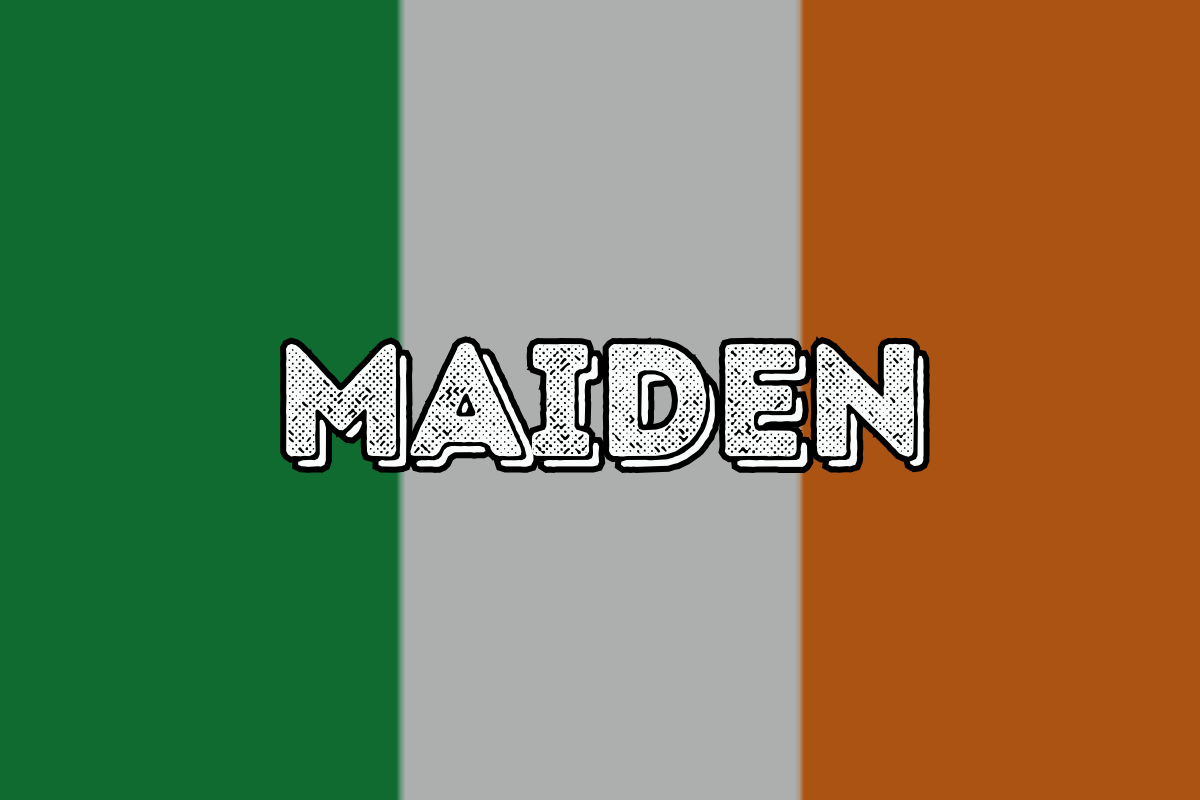
“Maiden” is a somewhat old-fashioned term used to describe a young woman, often with connotations of innocence, beauty, or romantic idealism.
It appears frequently in literature, poetry, and historical contexts, evoking images of fairytale heroines, noblewomen, and traditional folk stories.
While not commonly heard in everyday speech today, “maiden” still appears in storytelling, songs, and poetic expressions.
It carries a sense of nostalgia and is often used to add a touch of romance or mysticism to descriptions of young women.
Examples in sentences:
- “The maiden fair, with her hair like the golden sun, caught everyone’s eye.”
- “Tales of the brave maiden who saved the village are still told to this day.”
- “He searched the kingdom far and wide for the maiden who had captured his heart.”
- “In old ballads, the knight often rescues the maiden from danger.”
- “The young maiden tended to the garden while humming an old Irish tune.”
Missus
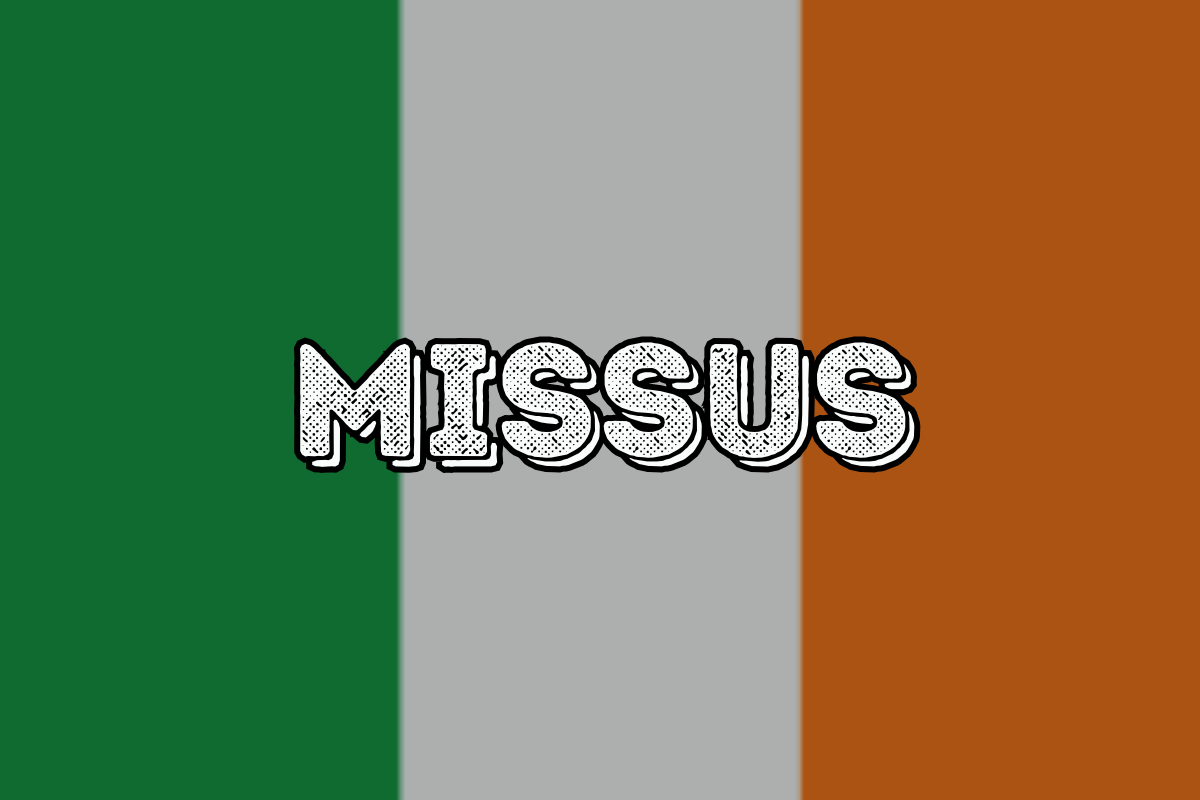
“Missus” is a common slang term in Ireland and the UK, primarily used to refer to one’s wife or long-term partner.
It carries a casual, familiar tone and is often used affectionately when speaking about a spouse.
However, it can also be used more broadly to refer to any woman in an informal setting.
Despite its traditional association with marriage, “missus” is frequently heard in everyday conversations, particularly among men discussing their partners.
It’s a term that conveys familiarity and warmth, though tone and context can influence how it’s perceived.
Examples in sentences:
- “The missus will have my head if I forget our anniversary again.”
- “Brought the missus to her favorite restaurant for her birthday.”
- “Wait till the missus hears about this; she’ll be thrilled.”
- “The lads are heading to the pub, but I promised the missus I’d be home early.”
- “Better check with the missus before making any big plans.”
Mot
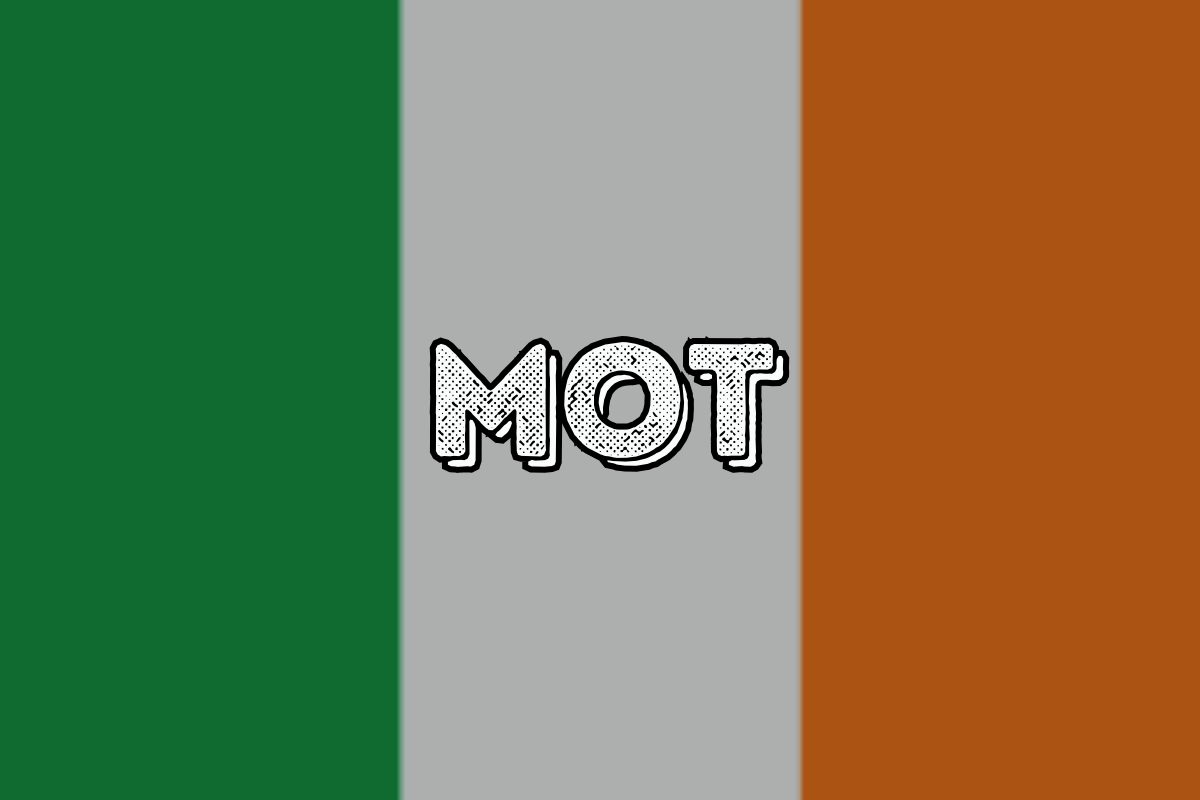
“Mot” is a popular slang term used in Dublin and some other parts of Ireland to refer to a girlfriend or significant other.
The word is often used casually and affectionately, similar to terms like “missus” or “lass” in other regions.
While its origins are somewhat unclear, it is widely recognized as a term for a romantic partner, particularly among younger generations in urban settings.
Though it’s mostly used in Dublin, the term “mot” is also sometimes heard in other Irish cities, though it’s not as common in rural areas.
It’s important to note that “mot” typically refers to a girlfriend, but it can sometimes be used more broadly to refer to any female partner, depending on the context.
Examples in sentences:
- “I’m taking the mot out for dinner tonight, somewhere nice.”
- “Did you see the gift he got for his mot? He’s really smitten.”
- “The mot and I are heading to the coast for the weekend.”
- “They make such a lovely couple, him and his mot.”
- “He was grinning ear to ear when he mentioned his mot.”
Moth
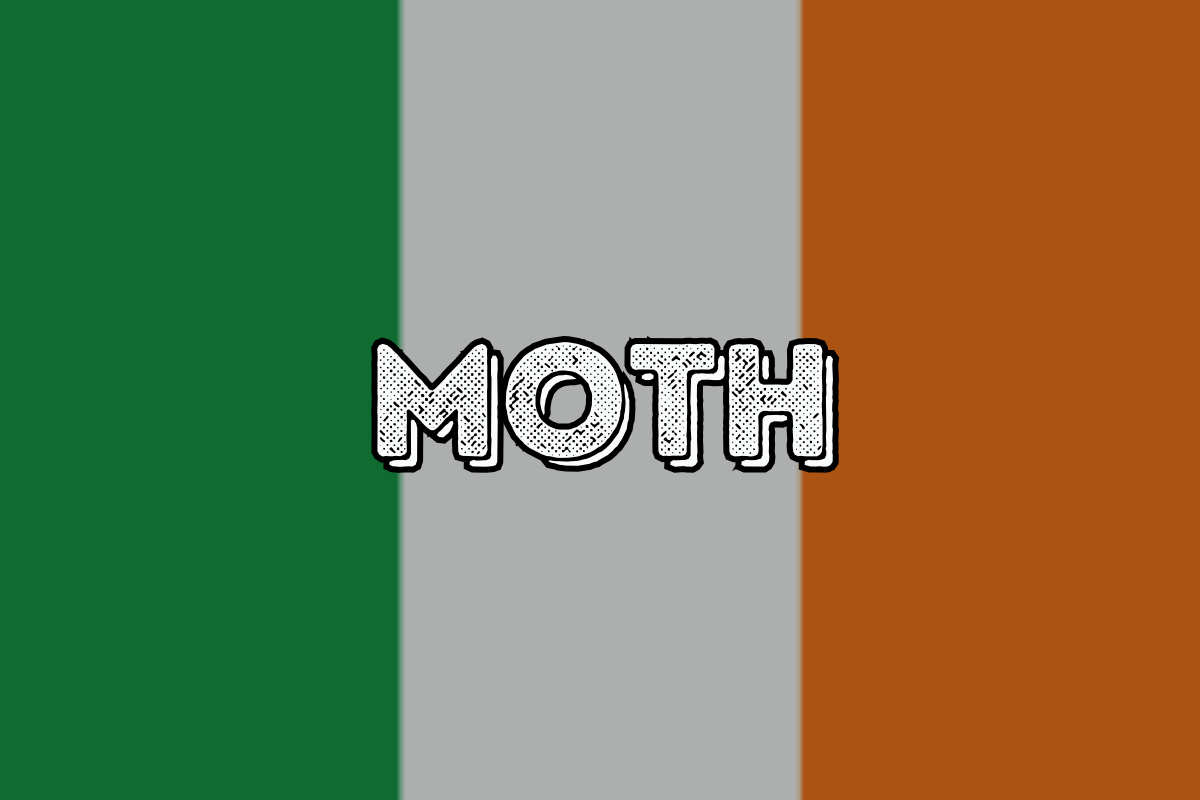
“Moth” is another term used in Dublin slang to refer to a girlfriend or significant other.
Much like “mot,” it is an affectionate term for a romantic partner, often used in casual conversation.
While “mot” is more widely recognized, “moth” is still a common term in Dublin, particularly among younger generations.
The term “moth” can be used both lovingly and playfully, often reflecting the lighthearted nature of relationships in Irish culture.
It’s another example of how Dublin has its unique set of slang terms for relationships and affection, contributing to the city’s rich linguistic culture.
Examples in sentences:
- “I’m meeting the moth later for a movie.”
- “He’s always on the phone to his moth, whispering sweet nothings.”
- “The moth’s got him wrapped around her little finger.”
- “They’re the perfect pair, him and his moth.”
- “The moth gave him a hard time for being late again.”
Puma
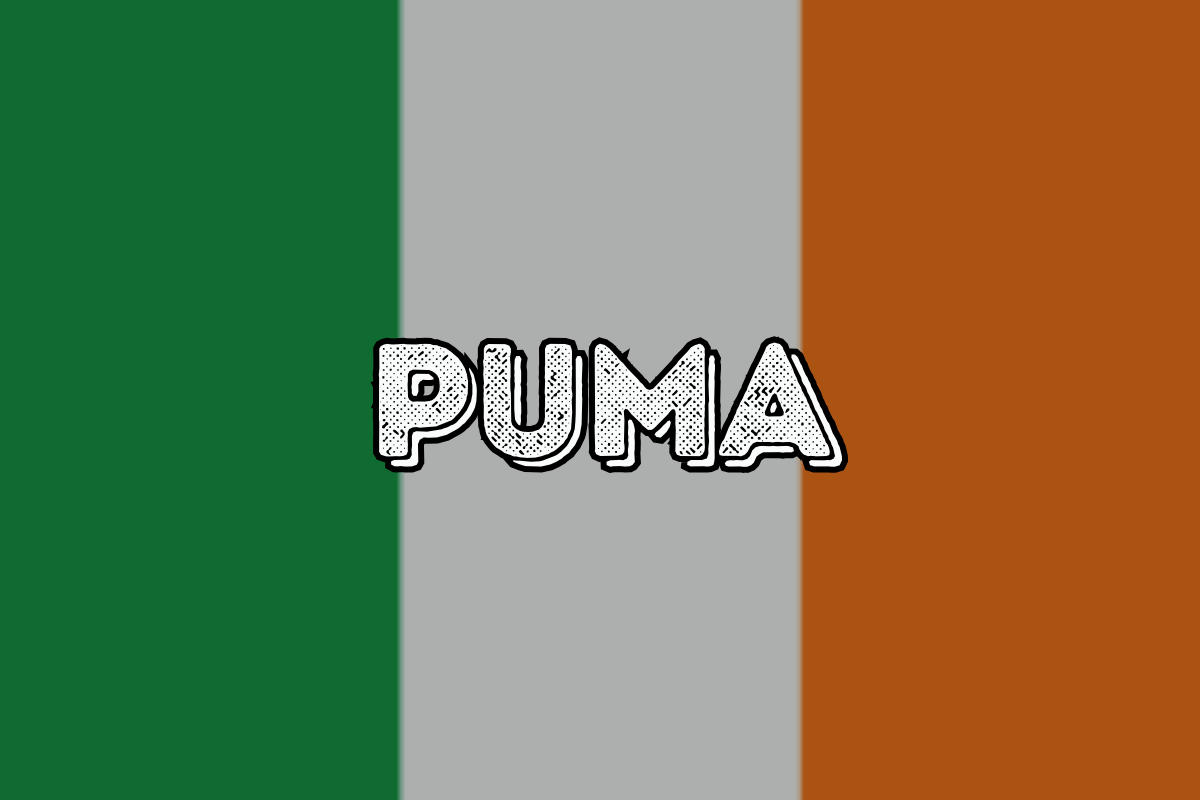
“Puma” is a term used to describe an older woman who prefers dating younger men, much like the more widely known term “cougar.”
The term is often used playfully, suggesting a woman who embraces her age and is confident in pursuing relationships with younger individuals.
It carries a sense of empowerment and attraction, much like its counterpart, the “cougar.”
While “puma” is not as universally recognized as “cougar,” it has gained traction in Irish slang, often used to describe someone who defies traditional age norms in relationships.
It’s typically used in a lighthearted or cheeky context.
Examples in sentences:
- “She’s a bit of a puma, isn’t she? Always with younger lads.”
- “At the club, he caught the eye of a puma who showed him the ropes.”
- “They say age is just a number, and she’s living it up like a true puma.”
- “You should have seen her with him; she’s definitely the puma in that relationship.”
- “She’s not afraid to flaunt it—he’s half her age, and she’s loving every minute of it.”
Sheila
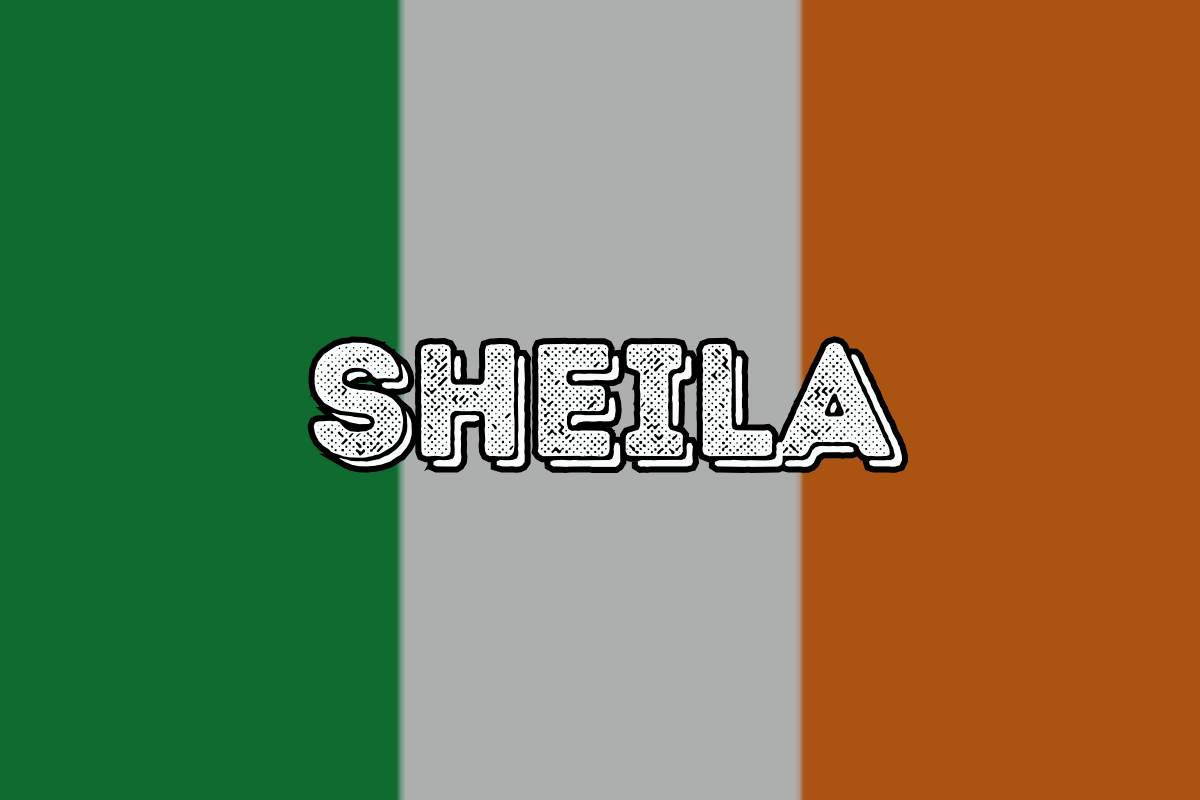
“Sheila” is a term most commonly associated with Australian English, where it is used to refer to a woman.
However, it occasionally pops up in Irish slang as well, typically in a playful or informal context.
It’s used to refer to a woman, often in a lighthearted or colloquial manner, and is similar to terms like “lass” or “bird” in the UK and Ireland.
While not as prevalent in Ireland as it is in Australia, the term “Sheila” has nonetheless made its way into Irish slang, often used to describe a woman in a casual or affectionate way.
Its use in Ireland is often influenced by Australian culture and media, though it remains a bit more niche in comparison.
Examples in sentences:
- “Met a Sheila at the bar who knew all the best local bands.”
- “That Sheila’s got style, always dressed to the nines.”
- “He’s been chatting up a Sheila he met at the beach.”
- “I can’t believe that Sheila actually asked me for my number!”
- “She’s a bit of a Sheila—always the life of the party.”
Wan
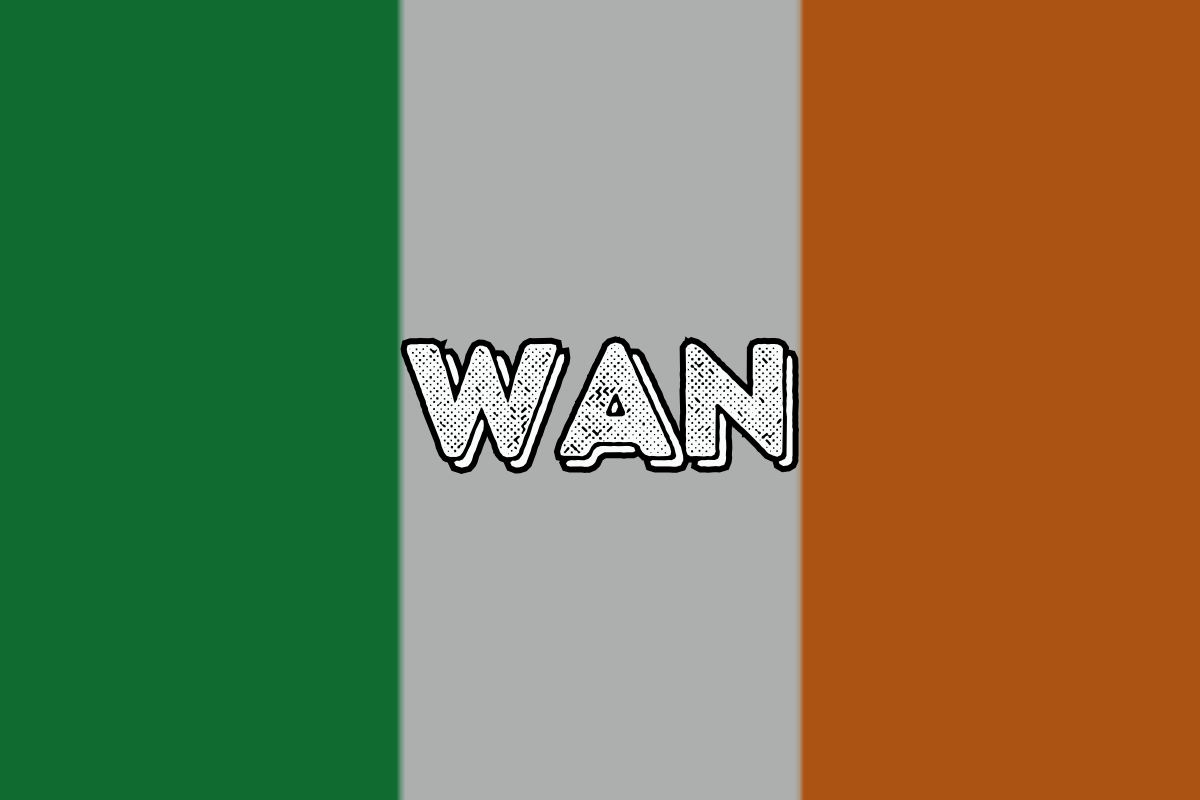
“Wan” is a Dublin slang term, derived from the word “one,” used informally to refer to a girl or woman. It’s often used in a casual, friendly way and can also carry a bit of affection, though it’s typically used in informal settings. While the term is primarily associated with Dublin, it can also be heard in other parts of Ireland.
In Dublin, “wan” is often used to describe a woman, whether referring to a friend, acquaintance, or someone the speaker finds interesting. It’s an example of how language in Dublin can evolve and become shorthand for common words, especially in casual conversation.
Examples in sentences:
- “See that wan over there? She’s a friend from college.”
- “This wan’s got a voice on her, can sing like an angel.”
- “Who’s the new wan working in the office? She seems nice.”
- “That wan in the red dress is turning heads all night.”
- “I saw the wan from the café again today, she’s always so friendly.”
So, as you can see, some of these terms are only used in very specific situations.
The most likely slang terms you’ll hear are lass or bird, and perhaps the Irish cailín next.
Either way, the Irish have plenty of ways to refer to women and girls using slang, and so if you ever hear any of the terms on this list, you shouldn’t be too confused anymore!

